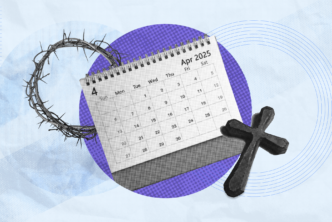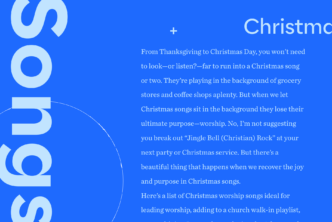With more than 25 million fatherless youths in America today, this generation has been tragically called the “fatherless generation.” How are we supposed to tackle such a monumental problem? How can we reach out to, love, and disciple this generation?
Recently, I had the privilege of connecting with John Sowers, founder of The Mentoring Project. His heart for loving the “fatherless generation” is incredible. See how this man of God is working hard to bring the love of Jesus to youths across America.
For those who don’t know, can you briefly explain the purpose of The Mentoring Project? Where did the idea come from, and when did you start it?
The purpose of The Mentoring Project is to call and equip the church to respond to the crisis of fatherlessness. Reaching the fatherless generation has been a life-calling to me—it was my story before it became my mission. It’s very personal to me. In 2009, Donald Miller called me to start and lead The Mentoring Project—it was previously know as the Belmont Foundation. So in June 2009, I incorporated it and created the mission and model.
The project seems have really picked up some traction in the last year or two. Why do you think this is?
I think in the past five years the church has begun to examine the issue of fatherlessness. There has been an overall emphasis in service and loving the world, which is great. Still, one of my key roles at The Mentoring Project has been as a herald because it seems people get the international orphan crisis more than they do the local one. For some reason, when we think “mission” we default to another country, when the issue of fatherlessness is in our own neighborhoods or just across the railroad tracks. There is overall traction on the issue of fatherlessness, but still a lot of awakening needs to happen around the idea of “being missional” to the fatherless child right next to us.
The Mentoring Project’s website says there are 25 million fatherless youths in America. What is your grand vision as to how the church will be able to fill this need?
The idea of the church reaching the fatherless generation through incarnational ministry is our goal. To do this, the church needs to adopt a vision for local, community-based mentoring relationships. We want to see the church create sustainable mentoring communities, reaching both single moms and the fatherless kids right in their own context. How many single moms and their children sit quietly in the shadows of our own churches?
What’s one story of mentorship impacting a youth that has touched you personally?
One of my favorite stories has to do with one of our sites in Oklahoma City, where we work with high-risk youth and the Oklahoma City Police Department. At the first of the year, we asked the kids what they wanted to be when they grow up. They all said, “rappers, ball players, and rich.” After six months of mentoring these kids, we asked them the same question again. They said, “police officers and mentors.” Children aspire to be what they see.
Last year, The Mentoring Project ran a cool Father’s Day promotion called “Don’t Buy the Tie.” What was the reason for that campaign? Do you have anything planned for this year?
We loved Don’t Buy the Tie—and we will do it again this year. We feel like Father’s Day is a great space to say, “This Father’s Day, help a child without a dad—give the gift of a mentor.” We are also working simultaneously with the DC guys for My Brothers Keeper, and may be partnering with them for a Father’s Day event. Last year, we were blessed to send mentors and youth to the White House, and two of them met the president.
If someone is interested in getting started as a mentor or wants to partner with The Mentoring Project, how could they get started?
If someone wants to mentor, we have a cool set of tools called the “Mentor Toolkit,” which help people develop a foundation for mentoring. The training includes three videos and they can be watched alone or with a small group. It also has a field guide and some best practice tips. Our Mentor Toolkit is perhaps our best initiative. We’ve seen thousands of people use it in the past four years. We are rereleasing it this July in an updated and expanded version.
Thanks for sharing about the Mentoring Project. You get to have the last word. Go!
One theme that really has my attention is the idea of masculine initiation. We live in a culture with few elders, with no rites of passage or sense of “coming into manhood.” We don’t have a framework for masculine initiation—we don’t even have a language for it.
I started journaling about this idea the night my twin girls were born. I was thrilled but also felt exposed as a man. This is both a cultural and generational phenomenon—a generation of men without place. These journal entries became a book called The Heroic Path: In Search of the Masculine Heart—which comes out May 13.
At the root of most fatherlessness is the issue of fidelity. I believe if men can understand who they are as men and find their identity hidden with Christ in God, the fatherless pipeline will shrink. This is my hope for the book—to be a word for a generation of men who are trying to find the wild masculine, and in a divine sense, claim their mythic ground.
I believe we are all mentoring someone, whether we know it or not. The Mentoring Project is just asking people to be intentional.
To learn more from Sowers, check out his book Fatherless Generation: Redeeming the Story.




